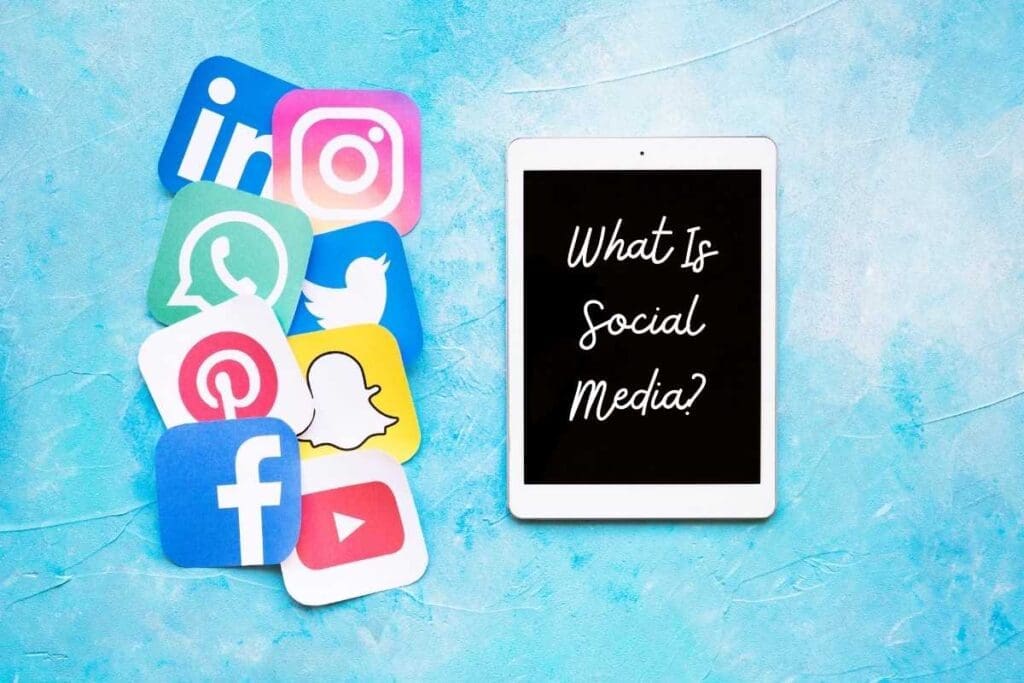There is a debate if social media companies like Facebook, Twitter, YouTube, Instagram, and Pinterest are considered Social Media Companies or technology companies.
Social Media companies consider themselves to be technology companies; they argue that they give a technology platform for people to share and post content. At the core of this argument is that they are not generating content for the social media platforms but are only giving a platform for posting user-generated content.
A problem with this theory is that many social media companies have started to step into the role of editor; the social media companies delete content that they consider offensive, illegal, or harmful to society. Because of this, many argue that the social media companies have stepped out of their role as technology companies but are now acting more as an editor of content.
Argument That Social Media Is A Technology Platform
Social Media companies will tell you that they consider themselves technology companies. In other words, they have a platform for people to post their content, giving way for them to post their social media content.
The argument, if the social media companies are technology companies, stands in two main areas as follows:
- Social Media Companies Do Not generate Content. The heart of the social media technology debate is that the social media companies feel they do not generate their content, so they think they are not responsible for it. The social media companies are not content creators but are just giving a platform to share content.
- Their Technology Determines How Social Media Is Displayed. The heart of the social media companies debate is that the algorithms or code will determine how, where, and even how much content is displayed without human intervention.
For almost all Social Media companies, this is their primary argument as to why they see themselves mainly as technology companies and not as editorial companies or companies looking to create content.
But where all this can get very messy is when content put on social media sites is considered controversial or even fake; social media companies have been known to take down the content. Just by the fact they are taking down the content, many people feel they are starting to step into an editorial role and are no longer just a technology company.
To understand if they are genuinely technology companies, it is good to look at and understand the definition of Social Media.
What Is Social Media?

To fully understand what a social media company is, it is good to know how social media companies are defined.
Investopedia defines social media as:
“The term social media refers to a computer-based technology that facilitates the sharing of ideas, thoughts, and information through virtual networks and communities. Social media is internet-based and gives users quick electronic communication of content, such as personal information, documents, videos, and photos. Users engage with social media via a computer, tablet, or smartphone via web-based software or applications.”
Investopedia
The main takeaway is that social media companies are technology-based companies set up to share ideas, thoughts, and information via virtual networks. Social media is user-generated content.
Social media companies are not set up like a newsroom where a newspaper or news organization would have a team of writers who research and publish the stories. Many of these same stories publishers post on social media to be able to increase their exposure and audience.
A newsroom, newspaper, or even a blog like this is actively working on researching and publishing information. The fact that we are all actively generating content means that we are content generators and not a technology company.
On the other hand, social media companies are not actively generating content but instead giving others a platform or a way to post and share their content.
Problem Arises When Social Media Companies Become Editors
The problems for the technology definitions start to arise and become confusing when the social media companies become editors and begin to delete posts or even users who they feel go against their guidelines.
In other words, when they start to combat things such as hate speech or unlawful media, many begin to argue that the social media companies are no longer technology companies but instead have stepped into the role of becoming an editor or more into the role of becoming a newsroom as they feel they are starting to act more like an editor of the content and not just a technology company.
Section 230 Of The Communications Decency Act
Section 230 of the United States Communications Decency Act is at the very core of this debate. The Communications Decency Act is a law that was set up to restrict free speech on the internet.
Section 230 of the Communications Decency Act says:
“No provider or user of an interactive computer service shall be treated as the publisher or speaker of any information provided by another information content provider.”
47 U.S.C. Section 230
In other words, the social media companies that host or allow online content to be posted are protected against a range of laws that could otherwise hold them responsible for what others say or do. The law protects not just the Internet Service Providers (ISPs) but also any third-party company that hosts content, including social media companies.
But many continue to argue that even with the law in place, the companies are still liable and need to do more to ensure the content posted on their sites is not fake, misleading, illegal, or harmful to society.
Some Social Media companies have been criticized for trying to stem free speech or get rid of content; other social media companies have been criticized for doing too little.
This debate is not clear-cut and will probably continue for a while. The discussion is important for anyone posting as an individual on social media or for a brand or company to understand why this social media debate continues.
Find out more about how Mondoro can help you create, develop, and manufacture excellent home decor and home furniture products – don’t hesitate to contact me, Anita. Check out my email by clicking here or become a part of our community and join our newsletter by clicking here.
Mondoro gives out a FREE Lookbook to anyone interested. You can receive a copy of our latest Lookbook by clicking here.
Listen to our Podcast called Global Trade Gal. You can find it on all major podcast platforms. Try out to listen to one of our podcasts by clicking here.
Subscribe to our Mondoro Company Limited YouTube Channel with great videos and information by clicking here.
Related Content
How Does Social Media Help In Communication And Marketing?
Social media helps give marketers a voice to communicate directly to their followers and fans. It helps brands to tell their stories directly to their audience. Social media helps improve brand loyalty while giving marketers a great way to understand their audience.
You can discover more by reading How Does Social Media Help In Communication And Marketing? by clicking here.
Why Do Social Media Strategies Fail On Implementation?
Social media strategies usually fail in implementation because there is no social media strategy. Companies and brands have also taken social media out of social media, and they forgot that social media is all about people. Their social media posts no longer feel real or do not interact with their audience.
You can discover more by reading our blog Why Do Social Media Strategies Fail On Implementation? by clicking here.
Is Having A Social Media Account Necessary Today?
Having a Social Media account continues to be essential for many individuals and companies. For an individual, their goal is usually to stay in touch with families and friends who may live around the world. For a business, their goal is to have a one-by-one brand or company awareness to their targeted clients or business community. Each of these has its challenges.
You can discover more by reading our blog, Is Having A Social Media Account Necessary Today? by clicking here.

